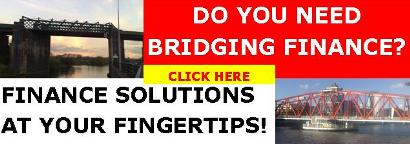Buying property abroad is more popular than ever,
with increasing numbers of people following their
dreams and purchasing a holiday home, a buy-to-let,
or moving lock, stock and barrel to the sun.
There
are a huge number of reasons for buying a property
overseas.It is now as easy to find and purchase
property OVERSEAS as it is to buy
in the UK. That said there are many legal and financial
considerations that are applicable to different
countries. With seeming no two country’s laws
being the same, it may well be easier to use the
help of a professional sourcing Company rather than
going it alone. The laws dealing with non-residents
buying property vary so much between countries,
that you may need to research the requirements before
you even start looking at properties. It's no good
falling in love with a place only to discover you
have to pay the debts of the last owner, or that
you can't renovate it in the way you want to.
It
is wise to use a registered and well-established
estate or property Agent to help you purchase your
property abroad.
Most
will have properties or developments for sale that
they package into a Ready Made deal or they may
source properties that match your requirements to
order. They can also recommend solicitors, notaries
and other professionals who are essential for the
smooth running of the purchase and may insist that
you use their nominated suppliers if it is a ready
made deal. You do not have to visit an investment
property before you buy although it would be wise
to do so it the purchase is for your residence.
Many Companies offer fly and buy trips. This could
be a good idea but you need to be fairly sure you
are ready to invest before you go as there could
be a lot of pressure to buy from the sales team
- many of whom work on a commission-only basis and
are very clever indeed.
Another key question when buying a holiday home
or investment in another country is your financing
method; should you take out a mortgage, use
a foreign currency loan or pay cash. The answer
is dependent on the individual circumstances and
you should take advice before making the decision.'
Buying
outright for cash has both advantages and drawbacks.
You do not have to worry about outstanding debts
or the impact of currency fluctuations; nor are
you under pressure to generate rental income simply
to pay your mortgage repayments each month. For
someone who is heading towards retirement in the
sun, it may be the best option; however, a lot of
wealth will be tied up in one not very liquid asset.
A cash buyer does not need an outside valuation,
so they may be in danger of paying over the odds
for a place they have fallen in love with.
Most
Investors will take out a mortgage.
This
way they commit less money to the Investment and
gear up to purchase a larger or better property.
It also provides a safety net, as the lender will
require a valuation and will not provide the money
if the property is overvalued. A further advantage
is that you may be able to minimise the UK tax paid
on rental income, depending on your circumstances
There
are two types of mortgage options available; sterling
and foreign currency.
For a Stirling mortgage, you would
need to remortgage a property in the UK (usually
the residential home) to release the capital that
has accumulated as property values have gone up.
This is down to the fact that UK banks will not
lend directly on overseas properties, due to other
countries' property purchase systems being outside
their sphere of influence and understanding.
Remortgaging
or extending a UK mortgage is pretty cheap; but
UK interest rates are considerably higher than in
many countries.
A foreign currency loan would be
arranged by a specialist UK-based overseas mortgage
Broker who
will arrange an overseas mortgage, usually with
a local bank. The Broker acts as a go-between, sourcing
the best deal and ensuring that the papers are correctly
presented.
A
disadvantage to an overseas mortgage is that overseas
mortgage Brokers are not regulated by the FSA so
it becomes all the more important to go to a well-established
firm.
Many
brokers charge up to 1% brokerage fee, despite the
fact that they generally get paid commission by
the bank as well. 'There is also the added risk
that the Broker is not well connected or doesn't
speak the language fluently, making negotiation
difficult.
Foreign
currency loans may have high set-up costs as you
typically need a deposit of 20%+. Although interest
rates are usually lower then in the UK, they will
be on a repayment basis over a period of 15-20 years.
In general a foreign currency mortgage will work
out cheaper over the years. A further considerations
for UK-based buyers, is the issue of foreign exchange
fluctuations which may effect and adjust monthly
mortgage payments quite severely. This effect could
be lessened by receiving rental or other income
in the currency that the loan is in. For example,
if you purchase in Europe using a local euro mortgage
and rented out to European tenants in Euros, then
the property might be self-financing in Euros, with
no need for sterling input.
If you were worried about exchange rate fluctuations
either during the purchasing process or the monthly
mortgage costs, you could consider entering into
a Forward buying contract. This enables you to fix
the exchange rate for the purchase or sale of currency
for delivery at a later date (up to two years) and
may be able to lock into a favourable exchange rate.
If
you own overseas property, you need to know about
the tax implications! This great book will show
you how to minimise your tax.


